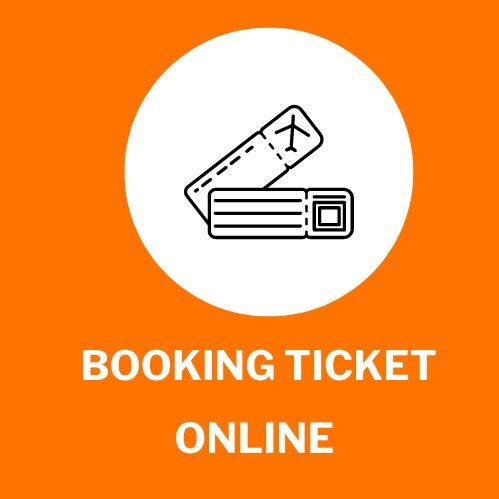Online ticket platforms often add service fees, booking fees, or convenience fees on top of the base fare or admission price. These extra charges cover the cost of payment processing, platform maintenance, or distribution. Always inspect the “total cost” before payment.
Where do these extra fees commonly appear?
Extra charges can appear in various aspects of online travel and event bookings. Understanding each category helps you identify potential hidden costs before checkout.
Airlines
When booking flights, consider the total cost beyond the base fare. Common add-ons include checked baggage fees, seat-selection charges, and change or cancellation penalties. Some low-cost airlines also charge for priority boarding, cabin baggage over a strict weight limit, or printing a boarding pass at the airport.
Shows, Concerts, and Events
Event ticketing platforms often list a ticket price that excludes service costs. Typical extras are handling fees, service charges, or convenience surcharges that cover payment processing and digital delivery. Premium seating, late booking, or ticket transfers can also raise the final total.
Trains, Buses, and Ferries
Transport operators and third-party booking sites may apply reservation fees, booking service charges, or credit card surcharges. These can vary depending on the route and time of travel. Some operators add extra costs for flexible tickets or for choosing specific seats on popular routes.
Tourism Passes and Attractions
City cards, museum passes, and guided tours sometimes carry online booking fees in addition to the listed entry price. Dynamic pricing – where costs shift based on demand or date – can also increase the final amount. Some attractions may charge a small fee for mobile ticket delivery, time-slot changes, or special exhibition access.
How large can these hidden costs be?
The size of extra charges depends on the service and timing. For smaller bookings, such as a short train ride or museum pass, the added cost may be just a few euros or dollars. For high-value purchases, fees can rise to 5–15 percent of the ticket price. Premium seating, last-minute reservations, or exclusive event access can further increase the total.
Airlines often charge separately for checked luggage or seat selection, and those combined extras can exceed the cost of the base fare on low-cost carriers. Major concerts, sports finals, or holiday flights may feature dynamic pricing, where the fee increases as demand rises.
Isn’t the ticket price final on the website?
Not necessarily. Many booking platforms display a base fare or headline ticket price first and reveal added costs only at the checkout page. This practice, known as split pricing or drip pricing, is designed to make the initial offer appear more affordable and competitive.
Travelers should review the final payment screen carefully, expand any fare breakdown sections, and confirm that the total cost includes taxes and service charges. Comparing the same trip on an airline’s official website and on a third-party platform often reveals how these hidden fees impact the actual price.
How to detect extra fees before checkout?
Spotting hidden charges early can save money and prevent surprises. Use these steps to identify all extra costs before confirming payment.
Expand “fare breakdown” or “price details” sections
Always open all pricing details. Look for separate lines showing service fees, taxes, payment surcharges, or seat-selection costs. These details often reveal charges that are not obvious on the main price page.
Switch to a “total cost including fees” view
Many booking platforms have an option to display the full amount with all taxes and fees included. Activating this view provides a clearer picture of the final price and helps compare offers across different sites.
Check payment method terms
Some credit cards, e-wallets, or international payment services add a processing fee or currency conversion charge. Review the terms for each payment method before choosing, and consider alternatives such as direct bank transfer if available.
Compare the direct seller’s website with third-party resellers
Check the official airline, train, or event website to see the real ticket cost without middleman fees. Third-party resellers may add convenience or handling fees, so comparing both sources can help you identify where these extra charges originate and assist in selecting the best value.
Are online booking fees always unavoidable?
No. While many booking sites add convenience or service charges, there are reliable ways to avoid or reduce these costs when planning travel or event tickets.
Buy directly from the provider
Airlines, train operators, ferry companies, and event venues often sell tickets on their own websites or apps without third-party markups. Booking directly can remove service fees and give clearer options for refunds or changes.
Choose payment methods with no surcharge
Some providers add a fee for credit cards or specific e-wallets. Selecting bank transfer, debit card, or other no-fee payment methods can lower the total cost. Always check the accepted payment types before finalizing your purchase.
Book in person when possible
If you are already near the station, port, or venue, purchasing at a physical ticket counter or kiosk can help you avoid online convenience charges. This is especially practical for local transport or same-day event tickets.
Look for promotions or fee waivers
Certain platforms occasionally waive service fees during special sales, loyalty-program periods, or for premium members. Subscribing to provider newsletters or creating an account may unlock these temporary savings.
Are online booking fees always unavoidable?
Not necessarily. Many booking platforms add service or convenience fees, but travelers can often reduce or avoid these charges by being mindful of their planning and making informed choices.
Buy directly from the provider
Purchase tickets on the official website or app of the airline, train operator, ferry company, or event venue. Direct booking typically shows the actual total cost and avoids third-party markups.
Select payment methods without surcharges
Some sellers add processing fees for credit cards or specific digital wallets. Opt for bank transfer, debit card, or a fee-free e-wallet to avoid hidden payment costs.
Book in person when practical
If you are near the station, ferry terminal, or event venue, buying at a ticket counter or self-service kiosk can help you skip online convenience fees. This works well for local travel or same-day events.
Use fee-waiver offers or promotions
Providers occasionally run no-fee booking campaigns, give discounts to loyalty members, or waive charges for early reservations. Checking newsletters, apps, or seasonal promotions can help you catch these savings.
What are red flags or traps to watch out for?
Hidden fees often appear when booking looks too good to be true. Recognizing common warning signs helps you avoid paying more than expected.
Unrealistically low base fare that rises at checkout
A price that seems far below competitors’ can hide service fees, taxes, or mandatory extras, which are revealed only on the final payment page. This practice, known as drip pricing, is standard on certain budget travel and ticketing sites.
Poor transparency about fees
Websites that do not display a clear fare breakdown or require you to click through multiple pages to view total costs may be hiding processing charges or convenience fees. Reliable providers display a detailed price summary early in the booking process.
Third-party sellers with unverifiable tickets
If the booking code cannot be confirmed on the airline, train, or event’s official system, it’s a red flag. Such tickets may include hidden costs, complicated refund terms, or risk of invalid reservations.
Non-refundable fees, even if you cancel
Some platforms keep service or handling fees when a booking is modified or canceled, even when the main ticket is refundable. Always read the cancellation and refund policy before making a payment.
For example, a traveler shared an experience of paying unexpected check-in fees on top of a discounted ticket bought through a third-party site, illustrating how unclear terms can quickly raise the final cost.
FAQs
How do currency conversion fees affect online ticket bookings?
When paying in a foreign currency, your bank or card issuer may add a foreign transaction fee or use an unfavorable exchange rate. This can add 1–3 % to the final ticket price.
Can booking multiple tickets in one transaction increase hidden costs?
Yes. Some platforms charge a per-ticket service fee, so buying several tickets in one order can multiply the extra cost. Check if a group or family fare is cheaper.
Do mobile ticket apps ever charge more than desktop sites?
Some mobile-only apps add app convenience fees or limit payment methods, which can result in slightly higher total costs compared to desktop purchases.
Are taxes always included in the displayed ticket price?
Not everywhere. In certain regions, local sales taxes or airport fees are added at checkout instead of being shown upfront. Always review the final tax breakdown.
How do dynamic pricing systems raise total booking costs?
Dynamic pricing algorithms adjust fares based on real-time demand, time of day, or seat availability, which can result in increased base prices and related service charges.
Could seat upgrades trigger additional hidden charges?
Yes. Choosing extra-legroom or premium seats often incurs an additional surcharge beyond the original fare and may also result in higher baggage or service fees.
How do last-minute bookings influence hidden fees?
Late bookings often incur higher base prices, and some sites may add rush-processing or express handling fees to expedite ticket purchases.
Are there extra costs for using specific digital wallets or fintech cards?
Some providers apply e-wallet transaction fees or limit promotional discounts when you pay with specific fintech cards, increasing the effective ticket cost.
Do refundable and flexible tickets carry different hidden fees?
Often yes. Tickets with flexible change or cancellation rules may include higher booking surcharges or special service charges for future modifications.
How can subscription-based ticket services impact total expenses?
Membership programs sometimes require a monthly or annual fee. Even if single-ticket charges are lower, the subscription cost must be factored into overall spending.
Can optional add-ons like insurance hide extra charges?
Travel insurance or event protection plans added during checkout can include administrative fees or taxes not visible in the base quote.
How does splitting an itinerary across multiple carriers add to costs?
Mixing airlines or train operators can create multiple service fees, as each carrier applies its own baggage and change policies.
Are there hidden fees when using promotional codes or vouchers?
Some discounts come with activation or redemption fees, and they may exclude taxes or mandatory surcharges, which can affect the final ticket cost.
Could printing a physical ticket incur an additional cost?
Yes. Some providers charge a ticket-issuance or mailing fee if you request a printed ticket instead of using an e-ticket or mobile pass.
How do seasonal surcharges influence online bookings?
High-demand seasons, such as holidays, may result in peak-season surcharges that cover extra staffing or demand-based pricing adjustments.
Do shared payment options create unexpected fees?
Splitting a payment among several cards or accounts can sometimes result in multiple processing fees, thereby increasing the total booking expense.
How do regional regulations impact online ticket fees?
Certain countries cap or mandate disclosure of booking surcharges, while others allow more flexibility. Travelers should check local consumer-protection rules.
Can hidden fees appear after the initial payment?
Occasionally, yes. Post-booking service charges may apply if itinerary changes, baggage updates, or ticket reissues occur after the first purchase.
How do group or corporate bookings affect overall hidden costs?
Large reservations may require special handling or incur additional administrative fees, particularly when multiple dates or destinations are included in a single contract.
Are there risks of double-charging when using third-party resellers?
If a third-party seller forwards your booking to another vendor, duplicate service fees or accidental double payments can occur. Always confirm the vendor of record before making a payment.



